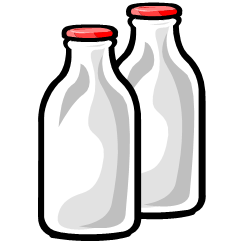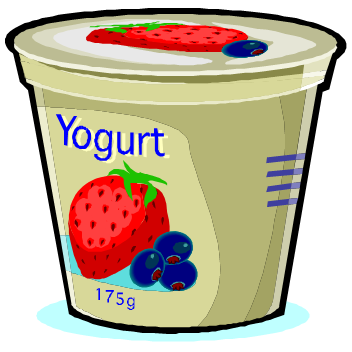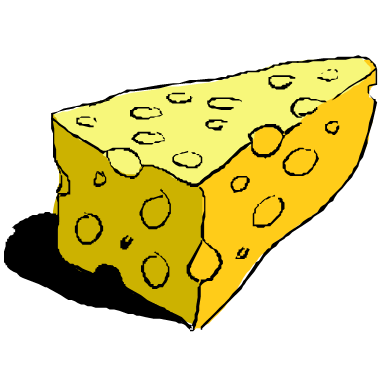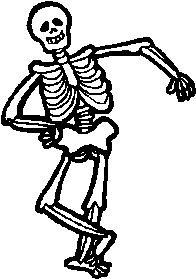Healthy Bones for Neuromuscular Conditions
Having strong bones is important for people with neuromuscular disorders. Reduced bone mineral density means that your bones become thinner and can break more easily. Calcium and Vitamin D are important to build and maintain strong bones and teeth.
To build strong bones growing children need
- A diet rich in calcium.
- Vitamin D to help the body absorb calcium.
- Physical activity or weight-bearing exercise.
Reduced bone mineral density means that your bones become thinner and can break more easily.
Children with neuromuscular disorders have an increased risk of reduced bone mineral density. This is due to:
- Reduced physical activity
- Side effects of steroid medications used to treat some neuromuscular disorders.
To keep bones healthy it is important to:
- Eat a well-balanced diet that includes enough calcium
- Maintain a healthy body weight
- Be as active as you can
Frequently Asked Questions
How much calcium is needed each day?
The amount of calcium needed increases with age. It is highest in adolescents. The amount needed is shown in the table below.
What foods are high in calcium?
Dairy foods such as milk, yoghurt and cheese are the richest sources of calcium. Calcium from these foods is easily absorbed.
Small amounts of calcium are found in a variety of other foods but without including dairy foods or calcium-fortified alternatives it is hard to get the amount of calcium that your body needs.
The number of serves of dairy food needed for each age group is shown in the table below.
|
Age |
Amount of Calcium (mg) |
Number of serves of dairy foods |
|
2-3 years |
500 mg |
1½ |
|
4-8 years |
700 mg |
2 |
|
9-11 years |
1000 mg |
3 |
|
12-18 years |
1300 mg |
3½ |
A serve of dairy food is equal to:
1 cup of milk

200 g tub yoghurt

40 g cheese (2 slices)

What type of dairy products are best?
Low fat and full-fat dairy products are both high in calcium. If your child is above their healthiest weight choose low or non-fat dairy products. If your child is below their healthiest weight choose full fat or regular dairy products.
What if my child doesn’t eat dairy foods?
If your child doesn’t eat dairy foods, try offering:
- calcium-fortified soy drinks or yoghurt
- high calcium non-dairy sources more often e.g. salmon with bones or sardines
If intake remains inadequate a calcium supplement may be needed.
Calcium supplements
These are available over the counter at chemists and in supermarkets. They can be used to supplement the diet if calcium intake is low.
- Nature's Way Kids Calcium – 200mg Calcium (chewable, flavoured ‘burstlets’)
- Andrew’s Tums Antacid Tablets - 200mg Calcium (orange flavoured, chewable tablet)
- Caltrate – 600mg Calcium (chalky tablet that can be crushed and added to food or swallowed whole)
- Cal-sup – 500mg Calcium (spearmint flavoured, chewable tablet)
- Calsource – 1000mg Calcium (effervescent tablet that dissolves in water)
- OsteoVit-D – 600mg Calcium and 500IU Vitamin D (chewable, vanilla flavour)
- Calvid – 1000mg Calcium and 880IU Vitamin D (an orange flavoured, effervescent powder that dissolves in water)
Your dietitian can advise you on a suitable dose for your child.
What about Vitamin D?
Vitamin D is important for the absorption of calcium and maintaining strong bones. Only small amounts of Vitamin D are obtained from food. Most Vitamin D is obtained from the action of sunlight on the skin. For most people, a few minutes of sun exposure on the face arms and hands each day will be adequate. It is important to be Sunsmart and avoid excessive sun exposure. Your doctor may order a blood test to check your child’s Vitamin D levels. If the level is low, a supplement will be needed.
Calcium content of food 
|
Food |
Amount of Calcium (mg) |
|
Drinks – 1 cup (250 mls) |
|
|
Regular milk |
300 |
|
Reduced fat milk |
350 |
|
Skim or non fat milk |
320 |
|
Physical™ low or non-fat milk |
440 |
|
Soy drink with added calcium |
300 |
|
So Good Essentials™ (Soy milk) |
400 |
|
Up & Go™ (250 ml Tetra pack) |
400 |
|
Sustagen™ |
400 |
|
Powders |
|
|
Sustagen powder, 1 tablespoon 20g |
180 |
|
Dried milk powder no fat, 1 tablespoon |
100 |
|
Desserts |
|
|
Yoghurt - reduced fat (100g tub) |
155 |
|
CalciYum™ Squeezie yoghurt (70g) |
160 |
|
CalciYum™ – Disney tub (95g) |
200 |
|
Soy Yoghurt – 175g tub |
210 |
|
Custard (½ cup |
140 |
|
Fruche (150 g tub) |
240 |
|
Ice-cream (1 scoop 25g) |
25 |
|
Cream 1 tablespoon |
15 |
|
Cheese |
|
|
Cheese (cheddar) 1 slice 20g |
155 |
|
Processed cheese 1 slice 20g |
130 |
|
Other foods |
|
|
Almonds, 1 tablespoon 8g |
30 |
|
Baked beans ½ cup |
50 |
|
Broccoli, 1 cup |
33 |
|
Canned sardines (75g) |
320 |
|
Orange – 1 medium |
30 |
|
Salmon with bones (50g) |
100 |
|
Wholemeal bread 1 slice 30 g |
30 |
